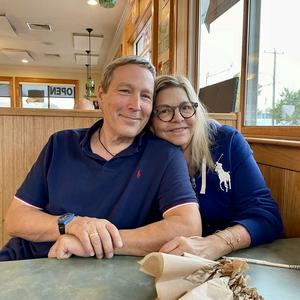Scam Artists and Scalp Fungus: An Unlikely Path to Success
Send us a textThe digital era has birthed a new class of con artists, fraudsters who construct elaborate facades online and infiltrate our most trusted institutions. From LinkedIn phantoms to fraudulent medical professionals, the audacity of these deceptions reveals uncomfortable truths about our collective vulnerability.Consider Jackson Simmons, "the most fake man on LinkedIn" – an entirely fabricated entrepreneur amassing thousands of followers with AI-generated photos and motivational platitudes. His nonexistent company garnered real press coverage and job offers, demonstrating how easily digital smoke and mirrors can manufacture authority. Then there's the TikTok polyglot claiming fluency in 38 languages who, when exposed by native speakers, defended herself by reframing her deception as "language fluidity, not fluency." These cases represent just the surface of a disturbing trend.More alarming are fraudsters who infiltrate essential services. We explore the case of Dr. Selina J, a cosmetologist with a YouTube channel about scalp fungus who successfully rebranded herself as a neuroscience expert financial coach for cryptocurrency firms. Even more disturbing is Shannon Womack, who posed as a nurse under multiple aliases at Pennsylvania hospitals, administering care to unsuspecting patients with completely fabricated credentials before her eventual arrest.Transportation isn't immune either – a 35-year-old Florida man channeled Frank Abagnale's "Catch Me If You Can" energy, impersonating airline crew members across seven different carriers to score over 120 free flights before authorities caught up with him. His elaborate scheme included counterfeit badges, IDs and security credentials that granted him access to restricted airport areas.Breaking from our fraud exposé, we take a musical detour to pay tribute to Ozzy Osbourne, the Prince of Darkness himself, who recently passed at 76. Despite his bat-biting reputation, we celebrate his musical legacy and the surprising tenderness in songs like "Mama I'm Coming Home," proving that even in darkness, there's room for vulnerability.What makes these stories particularly relevant is how they reflect our changing relationship with trust in the digital age. As verification becomes simultaneously more crucial and more challenging, we're forced to question: In a world where anyone can fabricate credentials, expertise, and entire personas, how do we determine what's real?Subscribe to hear more unexpected explorations of our unusual modern life, and visit WOMR.org to support independent community radio, the current administration has removed all funding from Public Broadcasting creating and huge problem for most Public stations such as WOMR/WFMR. Support the effort and support the show! Find our Facebook group: https://www.facebook.com/groups/447251562357065/


